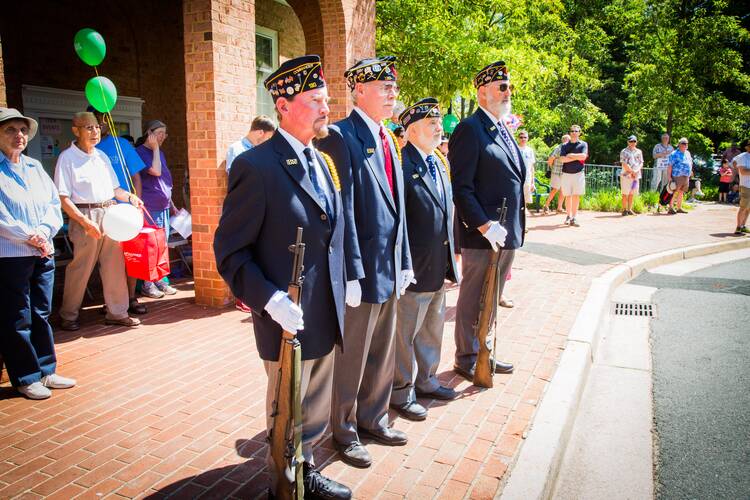The speaker at the Falls Church, Virginia Memorial Day observance began with the usual acknowledgements. “Do we have any World War II veterans among us today?” A few elderly men stood and received the grateful applause of the audience. “Do we have any here who have served in Iraq or Afghanistan?” the roll call continued. “Does anyone here have a spouse, son or daughter serving in Afghanistan right now?”
Finally, he asked, “Is there anyone here who is not a veteran, and has no family members in the service?” There was an awkward silence before one or two people stirred. “Precious few,” he sighed. Clearly the crowd skewed towards those with a personal connection to the military, most of them older. Plenty of young families turned out for the parade and food trucks, but the commemoration service wasn't much of a draw.
Much of this can be attributed to demographics. Memorial Day was created after the Civil War to acknowledge the Union war dead whose sacrifice had preserved our democratic republic. The war had claimed the lives of one in forty Americans, a trauma without parallel in our history. World War II, similarly, touched nearly every segment of our population. In both cases, few families and communities lacked for an intimate connection to men, and sometimes women, who had given their lives for our country.
This is a different time. Thankfully, our casualties from more than a decade of war in the Middle East are far fewer than in those earlier conflicts. Less happily, with the shift from mass conscription to a volunteer force, it has become possible for entire classes and communities to opt out of military service – and its sacrifices.
The speaker challenged the audience to reach outside the circle of veterans and military families and share the importance of Memorial Day with them. The gap between military and civilian in America is already too large; this might be a good place to start bridging it.








